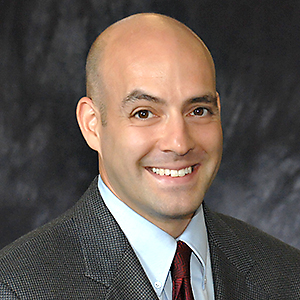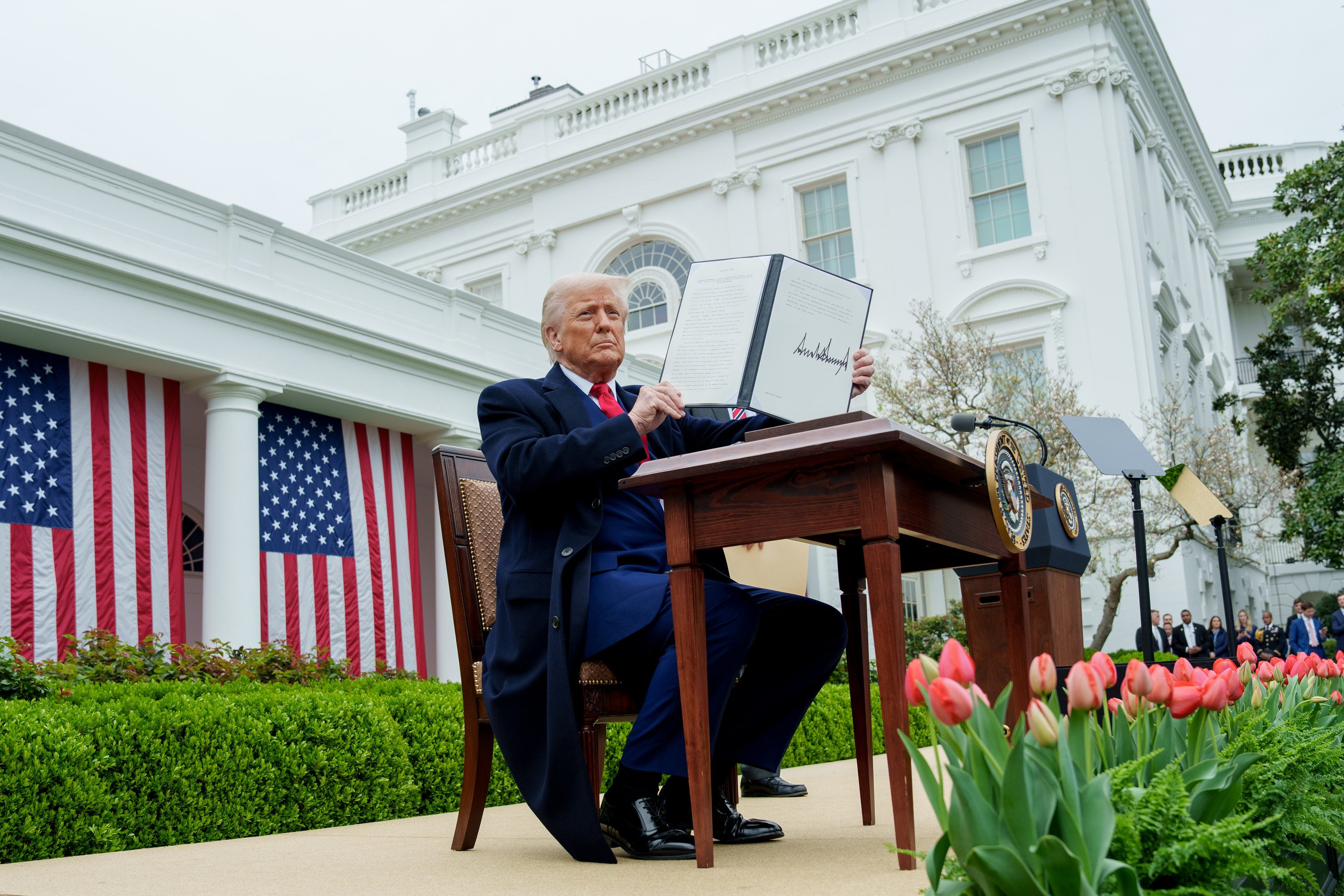Bolton Barked at the ICC, But With How Much Bite?
In his first major speech since becoming national security adviser, John Bolton yesterday returned to one of his most enduring themes: the dangers of the International Criminal Court and, more broadly, runaway and unaccountable “global governance.”
Published by The Lawfare Institute
in Cooperation With

In his first major speech since becoming national security adviser, John Bolton yesterday returned to one of his most enduring themes: the dangers of the International Criminal Court and, more broadly, runaway and unaccountable “global governance.”
Bolton selected a consequential moment for his speech. A panel of ICC judges is currently reviewing the request of ICC prosecutor Fatou Bensouda to open a full investigation in Afghanistan—specifically, into allegations of U.S. torture and detainee abuse in both Afghanistan and several “black sites” in Europe, along with myriad other criminal activity in Afghanistan by the Taliban, the Afghan government, and other actors. If approved—which is a near certainty—the investigation would be the first that includes criminal scrutiny of American personnel. It’s an important moment for the court and for its relationship with the United States and other non-state parties. (For earlier thoughts on how the United States might respond, see here and here.)
The American relationship with the ICC has been a frosty one since the court’s creation—and Bolton himself has been highly vocal in his criticism both inside and outside government as the court became a reality. But within these bounds, there has been important variability in the U.S. posture toward the court. Strident American opposition from about 2001 to 2005 yielded to a more pragmatic attitude under the second George W. Bush administration and an even warmer—if still necessarily restrained—relationship in the Obama years. Legislation passed in 2002 restricts most direct U.S. cooperation with the court.
It’s been almost a given since the Trump administration took office that the U.S. relationship with the court would be deteriorate to some degree. While the president himself has not focused his ire on the court, at least that I’m aware, his anti-internationalist rhetoric and loud insistence on standing up for the United States would suggest an anti-ICC posture. And the pendency of the Afghanistan investigation all but ensured some friction between Washington and The Hague, no matter who was in the White House.
Bolton faced the choice of whether to essentially ignore the ICC’s activities regarding the United States or engage publicly. He chose the latter approach, which I think is appropriate. The prospect of ICC charges against U.S. officials for their official acts is a serious issue that needs to be addressed. But Bolton chose to do so in a way that was maximally offensive to the court, often inaccurate, but also hollow at its core. As others have pointed out, there were serious misstatements regarding the ICC’s jurisdiction and the potential exposure of the United States in the future. Most egregious was Bolton’s suggestion that U.S. officials could face charges for the crime of aggression. As he surely knows, the United States and other non-member states cannot be prosecuted for aggression. (There is a real issue of how the crime of aggression might impact the involvement of U.S. allies in coalition operations, but Bolton did not frame his concern in that way.)
One of the more notable broadsides against the court yesterday involved not threats of future action but Bolton’s trumpeting of leaked emails from the court’s first prosecutor, Luis Moreno Ocampo. There has been little comment on this, but it showed the administration’s willingness to personally attack the integrity of court officials (and, perhaps fittingly for this administration, to use purloined communications as a mechanism for doing so). I’m would guess that the attacks on Ocampo will be making as many waves in ICC headquarters as the other elements of the speech.
Inaccuracies and personal attacks aside, how much did Bolton’s jeremiad against the court change things? I’m doubtful that the speech did much beyond pushing the ICC firmly into that category of international organizations—along with the U.N. Human Rights Council—whose standing in U.S. officialdom will depend very much on U.S. presidential elections. Beyond that, I would be surprised if the speech has much impact on ICC operations.
Bolton mentioned a series of policy steps to counter the ICC, which are worth reviewing in turn:
Negotiating more immunity agreements: Bilateral agreements through which states pledge not to send Americans to the court were a feature of Bolton’s earlier tenure in government. He and his team at the State Department negotiated dozens, and he now apparently intends to secure more. This return to the 2002-2005 playbook is not surprising and may not yield much in the end; those countries that have not signed immunity agreements to this point, including European Union states, are highly unlikely to do so with the Trump administration.
Sanctions and prosecutions against ICC personnel: Bolton promised to “sanction [the] funds [of ICC prosecutors] in the U.S. and … prosecute them in the U.S. criminal system.” As John Bellinger has pointed out, there does not seem to be any statutory basis for these actions, especially as Bolton signaled clearly that he will be working within the bounds of existing legislation. Unless he now changes tack and advances some kind of legislative change, I see his comments as a rhetorical provocation unlikely to produce concrete U.S. action. Bolton’s pledge to keep ICC prosecutors and judges out of the United States could be easier to implement, particularly if he means not allowing them to travel here on official court business related to the Afghanistan investigation. But existing legislation already requires that the United States not cooperate with court efforts to prosecute Americans. So, again, the actual policy change here appears minimal.
Linking cooperation with the ICC to U.S. aid: Bolton stated that the United States will keep in mind other countries’ cooperation with the ICC when setting “setting U.S. foreign assistance, military assistance, and intelligence sharing levels,” presumably to penalize those countries that do cooperate with the court. This is the same kind of threat that the United States have made regarding key U.N. votes, including recent criticism of Israel at the General Assembly. It’s a tactic beloved by conservatives working in the U.N. system. But it’s also a threat much easier to make than to put into practice. Anti-ICC animus will contend with many other national security priorities when actual foreign aid choices are made.
Seeking action at the U.N. Security Council to “constrain the Court’s sweeping powers”: This is a mostly hollow threat. As Bolton knows, it is exceedingly unlikely that Britain and France (or the requisite number of non-permanent members) will support general anti-ICC resolutions. There is, I suppose, an outside possibility that the United States might be able to secure a year-long delay of the Afghan investigation (and maybe the investigation into Palestine too) under Article 16 of the Rome Statute. But that also seems like a longshot in terms of Security Council politics.
On many of these points, the question of how disruptive these threats will be to the ICC, and how much they will determine future U.S.-ICC relations, will depend on their implementation and emphasis going forward. If the Trump administration were now to put aside other concerns to promote a multifaceted anti-ICC agenda, there could be some real consequences for the court. A concentrated diplomatic push to punish states working with the court would be significant. New legislation targeting ICC officials could set in train a damaging process of confrontations involving U.S. courts. But it’s very hard to see an administration plagued by dysfunction and facing threats from prosecutors much closer to home devoting the effort necessary to follow through with many of Bolton’s threats.
As Alex Whiting notes, there are also important questions about what signal the Bolton speech sends to the rest of the world. Will states currently lukewarm on the court use the Bolton speech as an excuse to dial down their cooperation? Will states thinking of joining the court now hesitate? How will Bolton’s attack play in African capitals already deeply skeptical of the court? These kind of second-order effects are very hard to predict, but it seems just as likely to me that Bolton’s remarks could actually boost the court’s legitimacy as it tangles with a wildly unpopular American administration.





